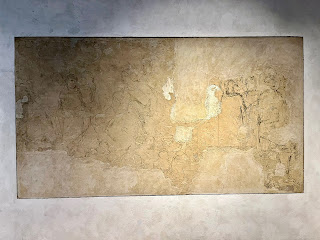Simulations and Their Philosophical Implications
NACAP 2010 @ Carnegie Mellon University - July 24-26, 2010
Simulations and Their Philosophical Implications
Call for Papers/Proposals
Deadline: February 1st 2010 (firm)
In honor of the 60th Anniversary of the publication of Alan Turing’s groundbreaking article, “Computing Machinery and Intelligence,” we are centering the 2010 NACAP Conference on simulations and their philosophical implications.
Since the inception of the computer, simulations have become ubiquitous tools of the trade in a wide range of disciplines from astrophysics to sociology, machine learning to logic. When experiments aren’t possible for a variety of reasons (e.g., financial, ethical, lack of a subject pool), researchers have increasingly turned to simulations to test theories, comb through data, make predictions or otherwise take knowledge in new directions. This conference will explore the philosophical implications of this increasing reliance on simulation as it applies to the broader scope of topics studied by our association.
To this end, we are interested in receiving submissions that explore themes in the intersection of philosophy and computing insofar as they involve, for instance:
We welcome submissions for papers, panels and demonstrations of computing and philosophy applications. Papers and demonstrations will be allotted 40 minutes, including time for commentary and questions (25 minutes for presentation, 5 for commentary and 10 for Q&A). 120-minute slots are available for panels and can be divided as the panelists see fit.
For papers, please limit submission length to 3,000 words, keeping in mind that the IACAP discourages participants from reading their papers to the audience. (Many presenters prepare slides using PowerPoint or some other software package. However, these need not be submitted with your original paper.) Include also a 250-word abstract.
The IACAP discourages "show-and-tell" demonstrations, but welcomes submissions that show a new and interesting application of computers to philosophy. Submissions in this category should consist of a 1,500-word abstract outlining what is innovative about the application and the questions pertinent to philosophy that your demonstration will raise.
For panels, please submit a 1,000-word summary of the panel as a whole, along with 300 to 500-word abstracts for each of its various components.
The conference will be accepting electronic submissions appropriately prepared for blind review on or before February 1st, 2010. Additional details will be sent in a separate CFP sometime in early December, 2009. They will also be posted to the IACAP website at http://ia-cap.org (follow the appropriate conference link) and mailed to the IACAP-announce mailing list. (See http://ia-cap.org/mailinglist.php to join.)
Simulations and Their Philosophical Implications
Call for Papers/Proposals
Deadline: February 1st 2010 (firm)
In honor of the 60th Anniversary of the publication of Alan Turing’s groundbreaking article, “Computing Machinery and Intelligence,” we are centering the 2010 NACAP Conference on simulations and their philosophical implications.
Since the inception of the computer, simulations have become ubiquitous tools of the trade in a wide range of disciplines from astrophysics to sociology, machine learning to logic. When experiments aren’t possible for a variety of reasons (e.g., financial, ethical, lack of a subject pool), researchers have increasingly turned to simulations to test theories, comb through data, make predictions or otherwise take knowledge in new directions. This conference will explore the philosophical implications of this increasing reliance on simulation as it applies to the broader scope of topics studied by our association.
To this end, we are interested in receiving submissions that explore themes in the intersection of philosophy and computing insofar as they involve, for instance:
- Evolutionary game theory
- Machine learning
- Cognitive science
- Political science and sociology
- Molecular biology
- The uses of simulation in the physical sciences
- Automated theorem proving
- Validating models with simulations
We welcome submissions for papers, panels and demonstrations of computing and philosophy applications. Papers and demonstrations will be allotted 40 minutes, including time for commentary and questions (25 minutes for presentation, 5 for commentary and 10 for Q&A). 120-minute slots are available for panels and can be divided as the panelists see fit.
For papers, please limit submission length to 3,000 words, keeping in mind that the IACAP discourages participants from reading their papers to the audience. (Many presenters prepare slides using PowerPoint or some other software package. However, these need not be submitted with your original paper.) Include also a 250-word abstract.
The IACAP discourages "show-and-tell" demonstrations, but welcomes submissions that show a new and interesting application of computers to philosophy. Submissions in this category should consist of a 1,500-word abstract outlining what is innovative about the application and the questions pertinent to philosophy that your demonstration will raise.
For panels, please submit a 1,000-word summary of the panel as a whole, along with 300 to 500-word abstracts for each of its various components.
The conference will be accepting electronic submissions appropriately prepared for blind review on or before February 1st, 2010. Additional details will be sent in a separate CFP sometime in early December, 2009. They will also be posted to the IACAP website at http://ia-cap.org (follow the appropriate conference link) and mailed to the IACAP-announce mailing list. (See http://ia-cap.org/mailinglist.php to join.)






Comments
Post a Comment